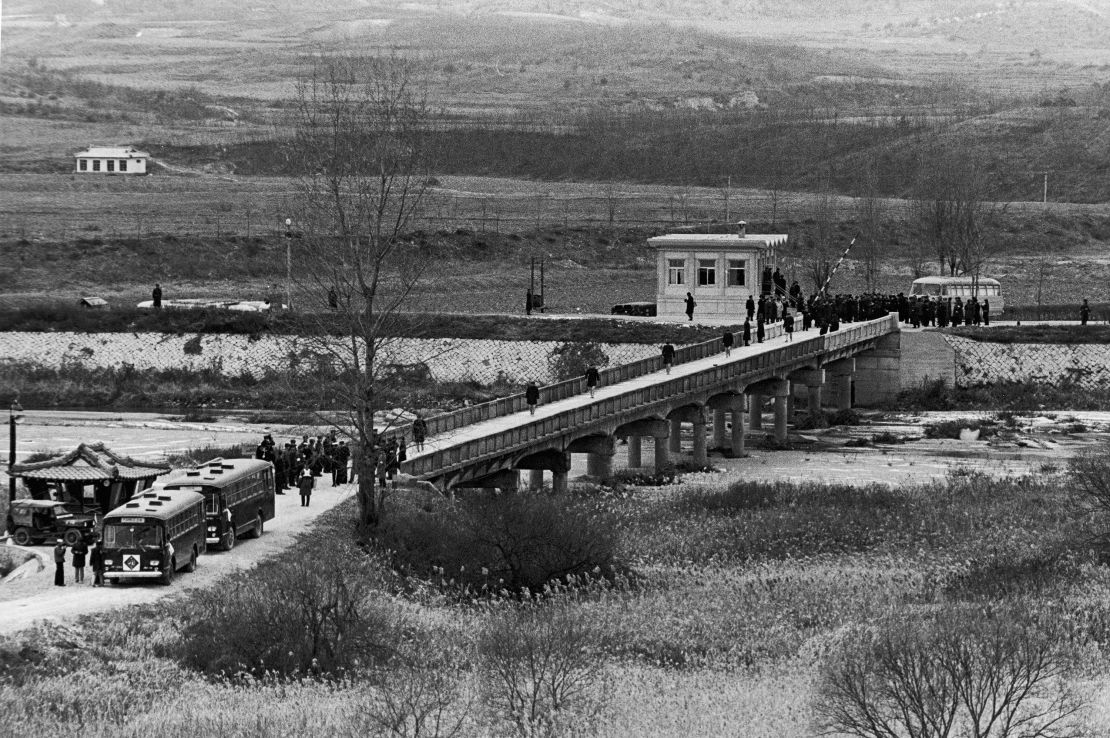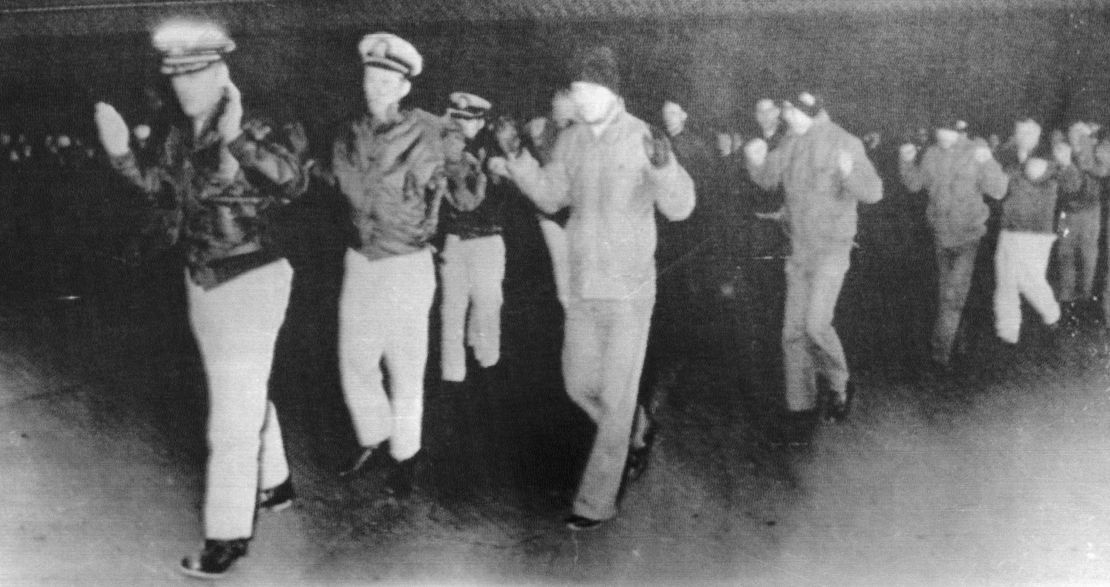Editor’s Note: This story was first published last February.
Story highlights
The USS Pueblo was seized by North Korea off the coast of the Korean Peninsula on January 23, 1968
A US judge previously awarded over $60 million in damages to USS Pueblo crew members in a 2008 lawsuit
Survivors of the USS Pueblo are suing North Korea, 50 years after the American spy ship was seized off the Korean Peninsula and its crew held hostage and tortured for 11 months.
More than 100 crew members and relatives have joined a lawsuit, filed in February 2018 in a federal court under the Foreign Sovereign Immunities Act, which allows victims to sue state sponsors of terrorism for torture, hostage-taking, personal injury or death.
North Korea will almost certainly not respond to the lawsuit, and plaintiffs are unlikely to be able to recover funds directly from Pyongyang, but if successful they will be eligible for relief from a US government fund set up to support victims of terrorism.
US President Donald Trump named North Korea a state sponsor of terrorism in November, after it was removed from the list in 2008 by President George W Bush, re-opening the window to litigation against Pyongyang under the 1976 Act.
“Our clients are seeking to hold North Korea accountable for the unspeakable acts committed against the crew of the USS Pueblo more than 50 years ago and the impact it has had on them and their families since then,” the plaintiffs’ lawyers said in a statement.
“Even though they can’t get back that nearly entire year of their lives, they hope this case will finally bring closure to that horrible chapter.”
Seizure and abuse
The Pueblo was seized by North Korea while it was in international waters off the coast of the Korean Peninsula on January 23, 1968.
After a tense standoff in which they desperately radioed for assistance that never came, the 83 crew members were transported to the North Korean port of Wonsan and later to a detention center near Pyongyang.
There they remained for 11 months as tensions on the peninsula ratcheted up to the extent that US generals drew up a potential nuclear strike plan, eventually opening negotiations with the North Koreans at the so-called Panmunjom “peace village,” on the demilitarized zone between North and South Korea.
After months of talks, the US agreed to sign a North Korean-drafted apology and the men were released across the DMZ.
Speaking to CNN last month, USS Pueblo crew member Stu Russell described their eventual release as the “greatest day” of his life, but he said many of the others were “completely out of it, almost completely devoid of emotion after suppressing our feelings and thoughts for months.”
“We were beaten down so far, and trying to come up,” said Russell, who is a party to the lawsuit.
According to the lawsuit, the experience of their captivity – which included regular beatings and torture, malnourishment and general ill treatment – left many of the men with “severe and lasting or permanent physical injuries and disfigurement and psychological harm.”
It also details the “mental anguish, pain and suffering” caused to the families of the crew, as they waited anxiously for news of their loved ones for 11 months and dealt with the after effects of North Korean abuse.
The 104 plaintiffs in the new case are seeking at least $600 million in damages, or around $5.7 million each. Many of the crew are now advanced in age, and still dealing with health problems as a result of their capture and the resulting medical expenses.

Recovering damages
The new case, “John Doe A-1 et al. v. Democratic People’s Republic of Korea,” follows a successful lawsuit in 2008 brought by three members of the crew, William Thomas Massie, Dunnie Richard Tuck and Donald Raymond McClarren, and Rose Bucher, wife of the Pueblo’s late commander, Lloyd Bucher.
In that case, the court awarded the three surviving crew members $16.75 million each, and Bucher’s estate $12.5 million for the abuse suffered during capture and the “physical and mental harm that (they) likely will continue to endure throughout the rest of their lives.”

North Korea did not respond to that lawsuit, and while it had been initially hoped the plaintiffs could recover damages from North Korean funds seized or frozen under international sanctions, this proved impossible.
However, last year the four were successful in arguing their eligibility for a relief under a $1.1 billion dollar fund established by the Justice for United States Victims of State Sponsored Terrorism Act, which can be awarded to people who have “secured final judgments in a United States district court against a state sponsor of terrorism.”
The fund was originally designed to compensate the 53 Americans held hostage in Iran for 444 days between November 1979 and January 1981. They received $4.4 million each in 2015.
According to their lawyers, the four Pueblo plaintiffs were awarded $9 million collectively from the fund in October 2017.
























































